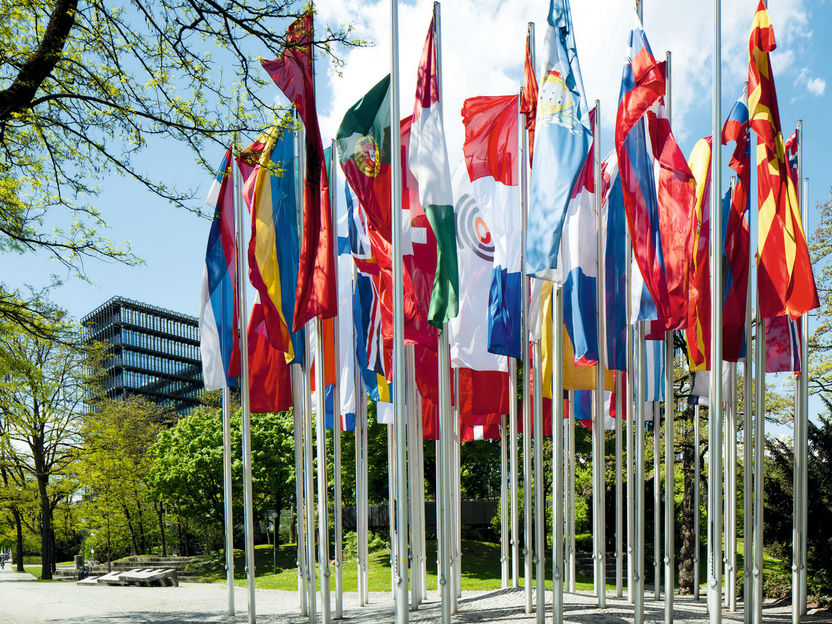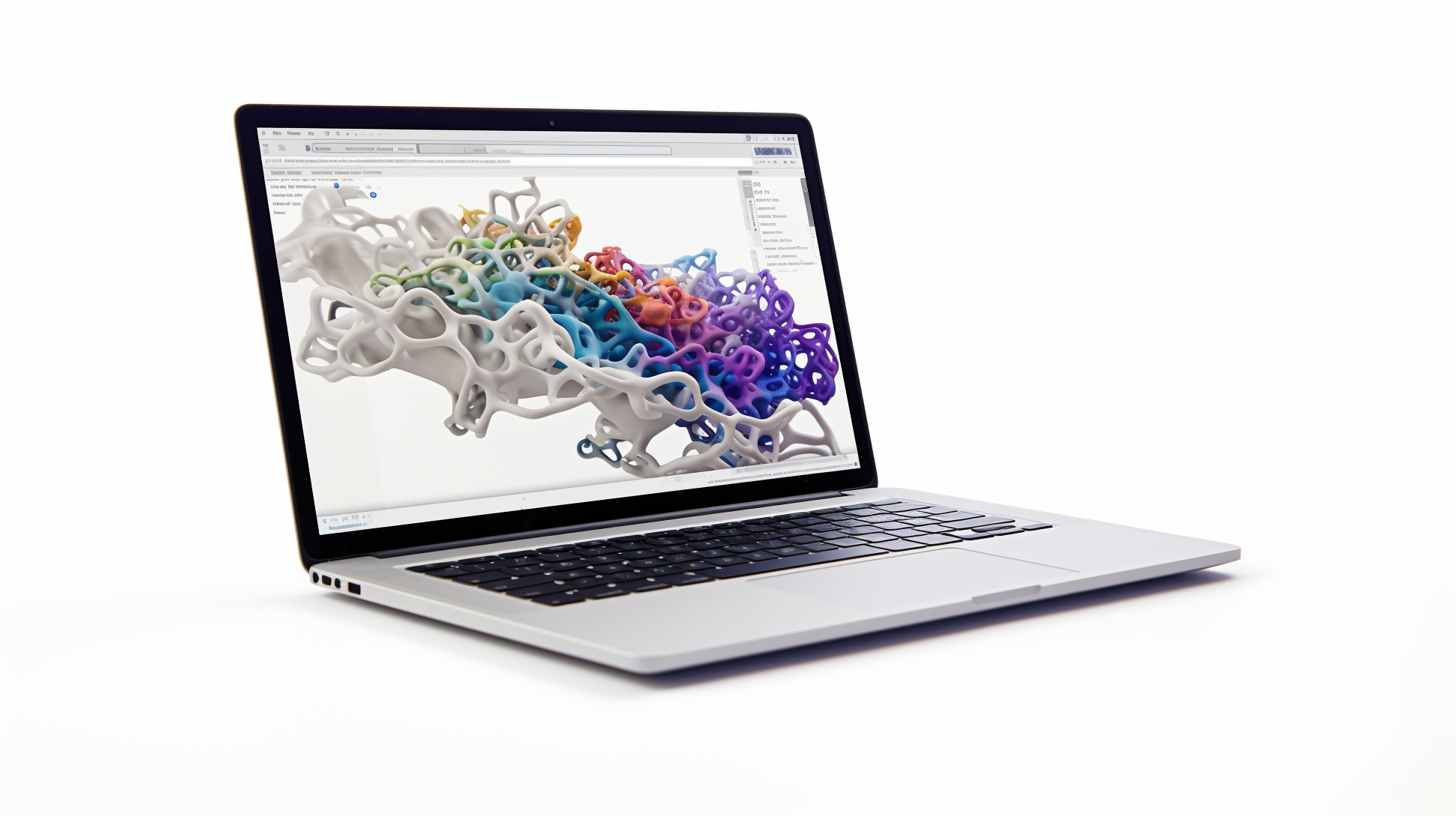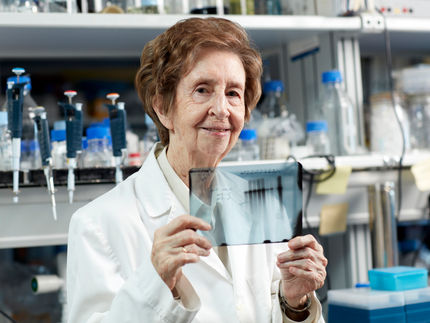EPO announces the finalists for the European Inventor Award 2019
The European Patent Office (EPO) announces the 15 finalists nominated for the European Inventor Award 2019. The Award, now in its 14th year, celebrates the genius and creativity of inventors and inventor teams for their contributions to scientific and technological progress, their role in generating economic growth, and their impact on our daily lives.

The headquarters of the EPO in Munich
European Patent Office
"These inventors are tackling some of society's most pressing challenges head-on. From fighting cancer to reducing plastic waste, the contribution of our finalists is spearheading a drive towards a better future," said EPO President António Campinos. "The range and impact of their innovations are also positive for the European economy. In the EU, sectors with a high use of patents, trademarks and registered designs employ around 60 million people, and account for over 90% of external trade. The European patent system not only supports inventors like our finalists, but also benefits society as a whole."
The winners of the 2019 edition of the EPO's annual innovation prize will be announced at a ceremony in Vienna on 20 June. The Award will be given in the five categories of "Industry", "Research", "Non-EPO countries", "SMEs" and "Lifetime achievement". The finalists and winners are selected by an independent, international jury. In addition, the public will choose the winner of the "Popular Prize" from among the 15 finalists by voting online on the EPO's website in the run-up to the ceremony.
The 2019 finalists come from 12 countries: Austria, France, Germany, Israel, Italy, Japan, the Netherlands, Norway, Poland, Spain, the United Kingdom, and the United States. They were selected by the jury from a pool of hundreds of inventors and teams of inventors put forward by members of the public, national patent offices around Europe, and EPO staff.
The inventions cover a range of fields including eco-packaging, rechargeable batteries, genetics, agricultural technology, video coding, cancer diagnosis, electron microscopy, advanced driver assistance systems and plastic recycling.
The choice of Vienna, a city at the heart of Europe, as the location to hold the Award ceremony is a fitting stage because it has a long, historic relationship with intellectual property; the Vienna Exhibition of 1873 was the setting for the first multilateral discussions on industrial property protection. Today, nearly 150 years later, the city is home to the EPO's centre for patent information.
The 2019 finalists in the five categories are
Industry
- Klaus Feichtinger and Manfred Hackl (Austria): Higher-performance plastic recycling
- Antonio Corredor Molguero and Carlos Fermín Menéndez Díaz (Spain): Concrete mould for better breakwaters
- Alexander van der Lely and Karel van den Berg (Netherlands): Milking robots for healthier cows
Research
- Jérôme Galon (France): Immunoscore®, a clearer cancer test
- Matthias Mann (Germany): Protein analysis to diagnose disease
- Patrizia Paterlini-Bréchot (Italy): ISET® blood filtration to detect tumour cells
Non-EPO countries
- Eben Bayer and Gavin McIntyre (US): Eco-friendly packaging from mushrooms
- Gideon Stein (Israel): Vision for vehicles to improve road safety
- Akira Yoshino (Japan): Lithium-ion battery and its evolution
Small and medium-sized enterprises (SMEs)
- Esben Beck (Norway): Lasers and AI for healthier salmon
- Rik Breur (Netherlands): Marine antifouling fibre wrap
- Richard Palmer, Philip Green (United Kingdom): Flexible armour that hardens on impact
Lifetime achievement
- Margarita Salas Falgueras (Spain): DNA amplification for genomics
- Maximilian Haider (Austria): Sharper electron microscopes
- Marta Karczewicz (Poland): Advances in video compression
Most read news
Other news from the department science

Get the life science industry in your inbox
By submitting this form you agree that LUMITOS AG will send you the newsletter(s) selected above by email. Your data will not be passed on to third parties. Your data will be stored and processed in accordance with our data protection regulations. LUMITOS may contact you by email for the purpose of advertising or market and opinion surveys. You can revoke your consent at any time without giving reasons to LUMITOS AG, Ernst-Augustin-Str. 2, 12489 Berlin, Germany or by e-mail at revoke@lumitos.com with effect for the future. In addition, each email contains a link to unsubscribe from the corresponding newsletter.
Most read news
More news from our other portals
See the theme worlds for related content
Topic world Protein analytics
Protein analytics provides a deep insight into these complex macromolecules, their structure, function and interactions. It is essential for discovering and developing biopharmaceuticals, understanding disease mechanisms, and identifying therapeutic targets. Techniques such as mass spectrometry, Western blot and immunoassays allow researchers to characterize proteins at the molecular level, determine their concentration and identify possible modifications.

Topic world Protein analytics
Protein analytics provides a deep insight into these complex macromolecules, their structure, function and interactions. It is essential for discovering and developing biopharmaceuticals, understanding disease mechanisms, and identifying therapeutic targets. Techniques such as mass spectrometry, Western blot and immunoassays allow researchers to characterize proteins at the molecular level, determine their concentration and identify possible modifications.
Topic world Diagnostics
Diagnostics is at the heart of modern medicine and forms a crucial interface between research and patient care in the biotech and pharmaceutical industries. It not only enables early detection and monitoring of disease, but also plays a central role in individualized medicine by enabling targeted therapies based on an individual's genetic and molecular signature.

Topic world Diagnostics
Diagnostics is at the heart of modern medicine and forms a crucial interface between research and patient care in the biotech and pharmaceutical industries. It not only enables early detection and monitoring of disease, but also plays a central role in individualized medicine by enabling targeted therapies based on an individual's genetic and molecular signature.
© 1997-2025 LUMITOS AG, All rights reserved





















































